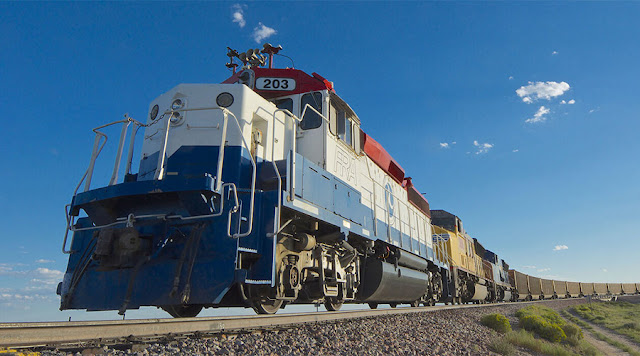 |
| Rail Components Market |
The global Rail Components Market is estimated to be valued at US$ 83.6 million in 2022 and is expected to exhibit a CAGR of 4.55% over the forecast period 2023 to 2030, as highlighted in a new report published by Coherent Market Insights.
Market Overview:
The Rail Components Market includes various products such as locomotives,
wagons, coaches, and other components used in the railway industry. These
components play a crucial role in ensuring the safe and efficient functioning
of rail transportation systems. The advantages of using rail components include
reduced energy consumption, lower emissions, and improved reliability compared
to other modes of transportation. With the growing need for efficient and
sustainable transportation solutions, the demand for rail components is expected
to increase significantly.
Market key trends:
One key trend driving the Rail Components Market is the increasing focus on
electrification and automation of railway systems. Electrification helps in
reducing the carbon footprint and dependence on fossil fuels by replacing
diesel-powered trains with electric trains. Furthermore, automation
technologies such as signaling systems and train control systems enhance the
safety and efficiency of rail operations. The integration of these technologies
with rail components is expected to streamline operations and provide better
passenger experience. Industry players such as Kawasaki Heavy Industries Ltd,
Siemens AG, and Hitachi Ltd. are investing in research and development
activities to develop advanced rail components that cater to the evolving needs
of the railway industry.
PEST Analysis:
Political: The political factors influencing the rail components market include
government policies and regulations related to the transportation sector. For
example, government initiatives promoting the development of railway
infrastructure and investments in rail projects can create growth opportunities
for the rail components market.
Economic: The economic factors impacting the rail components market include GDP
growth, disposable income, and government investment in transportation
infrastructure. A strong economy and increasing disposable income can drive the
demand for rail transport, leading to the growth of the rail components market.
Social: Societal factors such as population growth, urbanization, and changing
consumer preferences towards sustainable transportation options can influence
the rail components market. Growing concerns about environmental sustainability
and the need for efficient transportation systems can drive the demand for rail
components.
Technological: Technological advancements play a crucial role in the rail
components market. The adoption of advanced technologies such as automation,
IoT, and AI in rail transportation can improve efficiency, safety, and
reliability. These technological advancements can drive the demand for
innovative rail components, creating market growth opportunities.
Key Takeaways:
The global Rail
Components Market Share is expected to witness high growth, exhibiting
a CAGR of 4.55% over the forecast
period from 2023 to 2030. This growth can be attributed to increasing
government investments in railway infrastructure development to enhance
transportation services and promote economic growth. For example, initiatives
such as the development of high-speed rail networks and the modernization of
existing rail systems are driving the demand for rail components.
In terms of regional analysis, Asia Pacific is projected to be the
fastest-growing and dominating region in the rail components market. The
region's economic growth, rapid urbanization, and increasing population have
led to a surge in the demand for efficient and sustainable transportation
systems. Consequently, governments in countries like China and India are
investing significantly in rail infrastructure development, creating a huge
demand for rail components.
Key players operating in the rail components market include Kawasaki Heavy
Industries Ltd, CRRC Corporation Limited, Nippon Sharyo Ltd., Siemens AG,
Progress Rail (Caterpillar Company), Bombardier Inc., Hitachi Ltd., Alstom SA,
Escorts Group, Wabtec Corp. (previously GE Transportation), Construcciones Y
Auxiliar De Ferrocarriles sa, Hyundai Rotem, Trinity Industries Inc., Stadler
Rail AG, and The Greenbrier Companies. These key players are focusing on
product innovation, strategic partnerships, and mergers & acquisitions to
gain a competitive edge in the market.
Read More,
https://www.newsstatix.com/rail-components-market-trends-size-and-share-analysis/



0 Comments